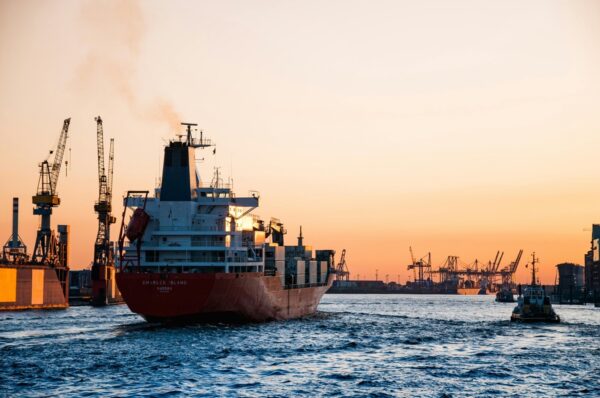A new study has explored the climate effect of the mandated reduction of sulphur in ship exhaust emissions globally since 2020.
Highly relevant to international policy, the study suggests that the shipping regulation has reduced how much light is being reflected back into space, which has likely contributed towards the record warming over the last few years.
Burning fuels “seed” cloud formation
International shipping, responsible for over 90% of global trade, has traditionally burned high-sulfur fuel, releasing sulfur gases and aerosols into the atmosphere. Aerosols, unlike gases, are particulate matter or droplets suspended in the air, which include dust, mist, fumes, and smoke. These sulfur aerosols act as “seeds” for cloud formation, increasing cloudiness and making clouds brighter due to smaller water droplets, which reflect more sunlight back into space. This unintended cooling effect has likely offset some of the planet’s warming from greenhouse gases, although its magnitude is uncertain.
However, sulfur aerosols are harmful to human health, particularly respiratory and cardiovascular systems. To address air quality concerns, the International Maritime Organization (IMO) implemented a regulation in 2020 (IMO2020) mandating an 80% reduction in sulfur emissions from global shipping.
This study used models to estimate the resulting reduction in aerosol-induced cooling, revealing that reduced sulfur emissions correlated with less light reflected from clouds and increased surface temperatures in the Northern Hemisphere during 2022-2023. While this reduction in emissions has improved coastal air quality, it has also contributed to accelerating global warming. Still, the study suggests that this regulation alone does not fully account for the recent record-breaking temperatures.
Photo by Martin Damboldt
Dr Mingxi Yang, an author on the study and Chemical Oceanographer at Plymouth Marine Laboratory, said:
“This study represents our current best estimate of the impact of ship emission changes on climate, which still may be on the conservative side. Aircraft sampling of ships emissions before and after IMO2020 showed that the shipping regulation not only changed the amount of sulphur gas being emitted but probably also made the ship-emitted aerosol less efficient at seeding clouds. However, this aspect is not yet accurately represented in models and thus, the full impact of the ship sulphur regulation on clouds still needs to be refined, which is on-going work”.
To help refine the estimates of aerosol induced-cooling as a result of the IMO2020 regulation even more in the future, a better comprehension of ship aerosol emissions and access to ship position data is needed. Understanding the risks and benefits of emissions reduction and the difficultly in robust attribution highlights the large uncertainty in attributing proposed deliberate climate intervention.
